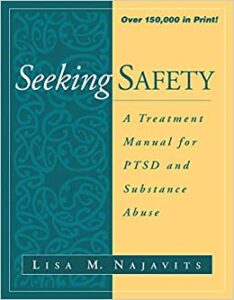Trauma and Addiction: Exploring the Link

Numerous studies have made the connection between trauma and substance use evident. To grasp the depth of this connection, it’s important to understand how trauma affects our mental landscape and how substance use often leads to addiction — and when someone struggling with substance use may need professional support. If you or a loved one identify with the information provided, seeking assistance from the Intensive Outpatient Treatment Program at KVC Nebraska may be an excellent next step. Let’s explore the link between trauma and addiction, and how KVC Nebraska can help.
Connecting Trauma to Substance Use and Addiction
Research shows that more than 70% of adolescents receiving treatment for substance use had a history of trauma exposure. That said, a link has also been made between individuals already using and abusing substances, and their ability to cope with a traumatic event, showing the potential for additional dependence.
In many instances though, trauma often predates addiction caused by substance abuse. Shannon Bolter, a Substance Abuse Coordinator at KVC Nebraska, mentions that people often turn to substance use not to feel good, but to feel less bad. In other words, it can be more about minimizing the negative than maximizing the positive. This is sometimes the case when individuals begin to self-medicate by using substances to cope with trauma.
Chronically dealing with or living in chaotic situations and experiencing traumatic events often results in the dysregulation of how the body copes with and responds to stress. The longer-term effects of this process can cause issues with several biological, emotional and mental functions.
“Trauma and abuse increase the vulnerability to addiction,” Bolter shares.
For those going through something like this, substances can offer a way to lessen those responses, and provide a pleasurable feeling outside of their norm.
Substance Abuse Leading to Addiction
Substance abuse is generally described as a pattern of drug use leading to significant problems. These problems can be anything from missing work or school to getting into dangerous situations like driving while impaired. It’s also likely that using substances leads to issues with relationships (family and friendships). These relationships (or the user) might identify symptoms of substance abuse are present, and depending on the user, might include:
- Using or drinking larger amounts for a longer period of time
- Unsuccessfully controlling urges to use or drink
- Using that interferes with normal life duties, responsibilities and everyday activities
- Continuing to use in spite of health risks, or after health issues arise
- Noticing that increased use is needed to feel the desired effect
When looking into substance abuse or addiction, digging into the root cause is a big step. Since everyone has a different makeup and set of experiences, it’s almost impossible to tell what the cause of substance abuse and addiction will be for any one person. However, a few of the most documented root causes of addiction are genetic predisposition, mental illness, history of trauma and chronic stress. No matter what the cause, coping by abusing substances can lead to dependence and addiction, unless the pattern is stopped.
Understanding Addiction
When substance abuse is used as a coping mechanism for trauma, it paves the road (and mental pathways) leading to addiction. Reaching this point means the brain functions affecting thought patterns and behaviors have changed, and even though the substances have caused a string of negative consequences, the user cannot stop using them.
This continual loop happens because of the connection the brain makes when drugs or alcohol are used and dopamine (a neurotransmitter) is released, causing our bodies to feel pleasure. This is typically why substances are often chosen to cope with the mental effects of trauma. This can make our brains and bodies feel negative emotions less severely (for some time), but these effects are temporary, and when they wear off, cravings for that dopamine release begin again.
The good news is that help is available. KVC Nebraska offers a program for community members to get support while recovering from substance abuse disorder.
The Intensive Outpatient Treatment Program (IOP) – KVC Nebraska
As a unique and beneficial option for those seeking treatment for substance use, the outpatient program allows individuals ages 12 and older, who do not need detoxification support or full-time supervision, the ability to address addiction. Some clients would benefit from an in-patient program but can’t step away from their work or family responsibilities for an extended amount of time. Unlike the in-patient programs, this treatment allows clients to live their normal lives in conjunction with their participation in treatment.
How Intensive is the Program?
This program is involved — in a good way. It’s structured so clients do not have to live at the facility to gain access to treatment with mental health professionals in group and individual therapy sessions, and other rehabilitation resources. Although this is a highly successful environment to work with clients dealing with substance abuse and dependency, it’s much more intensive than other outpatient programs. Once in the program, clients will:
- Meet 3-5 times per week for 6-8 weeks
- Of those meetings, at least three are group sessions lasting 3-4 hours each time, and one session is an individual therapy session

How Can this Program Help?
The Intensive Outpatient Substance Use Treatment Program at KVC Nebraska takes a unique approach in the type of treatment used when helping its clients. A counseling method called Seeking Safety helps clients focus on the present while addressing both trauma and addiction. This type of counseling does not require the client to get into the specifics of the trauma itself and has been successful with a wide variety of people. 
One key aspect of this outpatient treatment is participation in group sessions. Bolter mentions that many individuals feel alone in their trauma, and it can be positive to see that other people are experiencing something similar and can relate. With that in mind, this group session purposefully provides the following:
- Healthy interactions
- Formation of new social groups
- Improved communication skills
- A safe space and support
- Learning new skills
- Practicing recovery behaviors
There are many ways to address the coping patterns developed from the need to escape daily situations and trauma. This program is only one option in a list of many. However, KVC provides connections to beneficial community resources and wants to be sure the best treatment is found for those who need it.
If you or someone you care about could benefit from KVC Nebraska’s Intensive Outpatient services, learn more about the program and how to get started. Our team is here to help.




